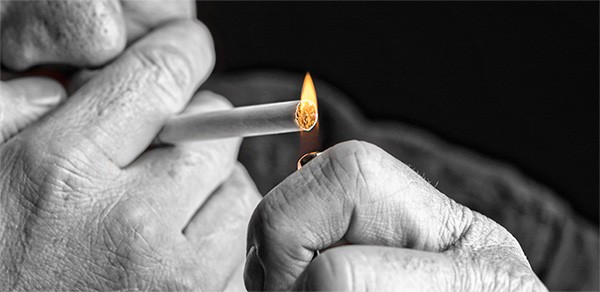 Two UWM economists have figured out a way to guess your credit score: They look at whether or not you need a nicotine fix.
Two UWM economists have figured out a way to guess your credit score: They look at whether or not you need a nicotine fix.
Niloy Bose and Scott Adams study the fundamental differences between smokers and non-smokers with research published in the Journal of Economic Behavior and Organization and featured on the Harvard Business Review’s Stats blog. Here are four things they’ve learned:
Smokers have lower credit scores than non-smokers – by 35 points, on average.
Evidence suggests smokers and non-smokers differ in willingness to take risk, patience and other personality traits. But Bose and Adams, working with University of Minnesota Professor Aldo Rustichini, found that even accounting for those differences, along with such things as age, gender and occupation, the gap in credit scores remains.
“If smokers are being treated differently in the work place, and we are seeing that being the case, I think we’re showing that there probably is some underlying reason for that.”
–Scott Adams
“There’s something in the non-smokers that we have not understood yet,” Bose said.
People with low credit scores can have difficulty getting home and other loans or be charged higher interest rates.
Genetics might matter.
While Adams and Bose can’t account for the difference between smokers and non-smokers, they think genetics might play a role.
“I think there is a genetic component that predisposes somebody to smoke, not be able to quit, and be a sustained smoker that isn’t the case with others, and that also contributes to their poor financial decision making,” Adams said. “One possibility is how the dopamine receptors in one’s brain, how people respond to heightened serotonin levels, is going to affect a lot of different things. It’s going to affect how they respond to the reward from having a cigarette, and those sorts of things wouldn’t come up in the personality test.”
Employers notice the difference.
Some businesses, including hospitals, have decided to stop hiring smokers altogether, indicating they detect the difference even if researchers can’t yet articulate it.
“If smokers are being treated differently in the work place, and we are seeing that being the case, I think we’re showing that there probably is some underlying reason for that,” Adams said. “That’s not another characteristic you can point to; it’s something that is being detected by employers. It maybe shows up in some of smokers’ other behaviors along the way.”
This doesn’t mean your credit score will go down if you light up.
Credit scores depend on a variety of factors including income, debt, timeliness of repayments, borrowing history and more. The act of smoking itself has no effect on a person’s score, and a person who quits smoking won’t see their credit score rise as a result.
“We’d like it to,” Bose joked. “We are not drawing any causal relationship here. … We don’t have enough data to draw a causal association.”
However, being a smoker is a good indication that an individual may have a low credit score. In one study, Adams said, “it was arguably the most important data in determining your credit score.”






